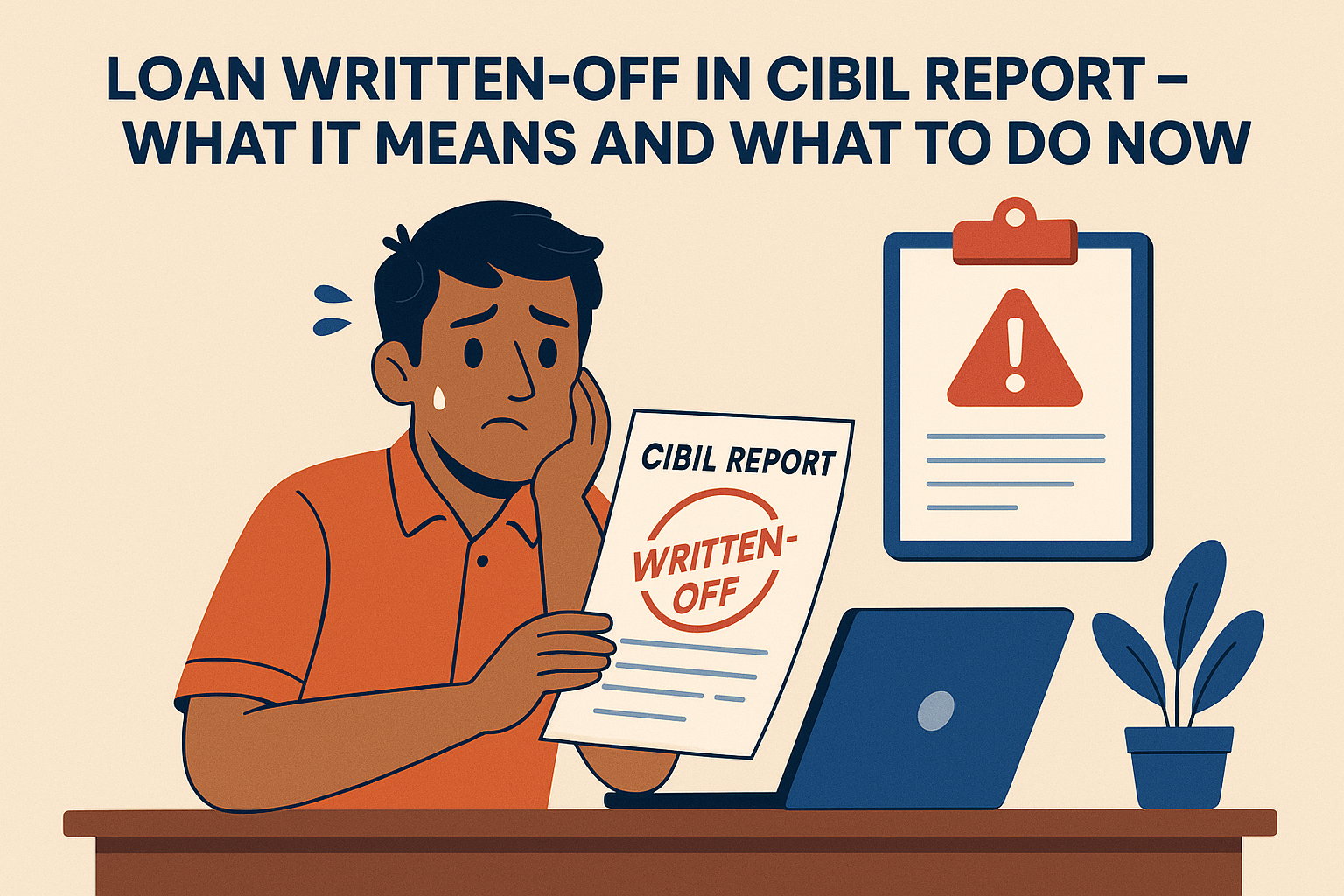Checked your CIBIL report and found the status marked as “Written-Off”?
Don’t panic. You’re not alone. Thousands of people discover this confusing term after missing EMIs or settling a loan. But what does it actually mean—and can you fix it?
Let’s break it down.
What Does “Written-Off” Mean in CIBIL?
“Written-off” means the bank has declared your loan non-recoverable after repeated defaults—usually when no EMI was paid for 180 days or more.
It doesn’t mean:
-
Your loan is forgiven
-
You don’t have to repay anymore
-
You are free from the legal obligation
It simply means the lender moved it out of active books for accounting purposes—but you still legally owe the amount.
Why Do Banks Write Off Loans?
-
To clean their balance sheet
-
To claim tax benefits
-
When the loan turns into a Non-Performing Asset (NPA)
-
When the borrower doesn’t respond to recovery attempts
Even after writing it off, the lender can pursue legal action, file court cases, or assign recovery to third parties.
How Is It Different from Settlement or Waiver?
| Term | Meaning |
|---|---|
| Written-Off | Bank gave up hope of recovery, but loan is still due |
| Settled | Borrower paid a lower amount with bank’s approval |
| Waived-Off | Loan legally forgiven by the bank or government |
So if it says “written-off,” it’s not a settlement—you still owe the money, and the status hurts your CIBIL score.
Impact of Written-Off Status on Credit Score
-
CIBIL score drops sharply (up to 150 points or more)
-
Banks reject new loans or credit cards
-
Stays on your report for 7 years
-
Recovery agents may still contact or threaten legal action
What You Can Do Next
1. Get Your Latest CIBIL Report
Understand your exact loan details—amount written off, date, remarks, last update.
2. Contact the Lender
-
Ask for a settlement or full repayment plan
-
Negotiate to change status from “Written-Off” to “Closed” after payment
-
Request NOC (No Objection Certificate)
3. Make the Payment (if possible)
Even if the loan is old, paying it off helps restore your creditworthiness.
4. Ask the Bank to Update the Report
After payment, the bank must inform CIBIL and update the status to “Closed” or “Settled.”
5. Dispute Errors (If Any)
If the amount is wrong or already paid, raise a CIBIL dispute online to correct it.
6. Start Rebuilding Your Credit
-
Get a secured credit card (against FD)
-
Take a small loan and pay on time
-
Maintain good credit habits
Mistakes to Avoid
❌ Ignoring the status
❌ Believing it’s legally forgiven
❌ Falling into agent scams promising “removal” without payment
❌ Making informal payments without proof
How Lawfully Finance Helps You Resolve Written-Off Loans
Lawfully Finance supports you with:
-
Negotiating legally with the lender to clear the dues
-
Getting your status updated from “Written-Off” to “Closed”
-
Helping you file correct disputes on CIBIL
-
Building a long-term credit recovery plan
-
Ensuring all payments are documented and transparent
Thousands of people have recovered from bad CIBIL records with the help of Lawfully Finance—without paying hidden commissions or falling into fraud traps.
Final Takeaway
A “Written-Off” loan doesn’t mean freedom from debt—it’s a warning sign. But with the right steps, you can resolve it legally, improve your credit score, and get back on track.
And if you need expert help, Lawfully Finance is always here to support you.
Connect with Lawfully Finance
Lawfully Finance has already helped thousands of borrowers across India clear written-off loans and rebuild their credit—legally, ethically, and safely.


